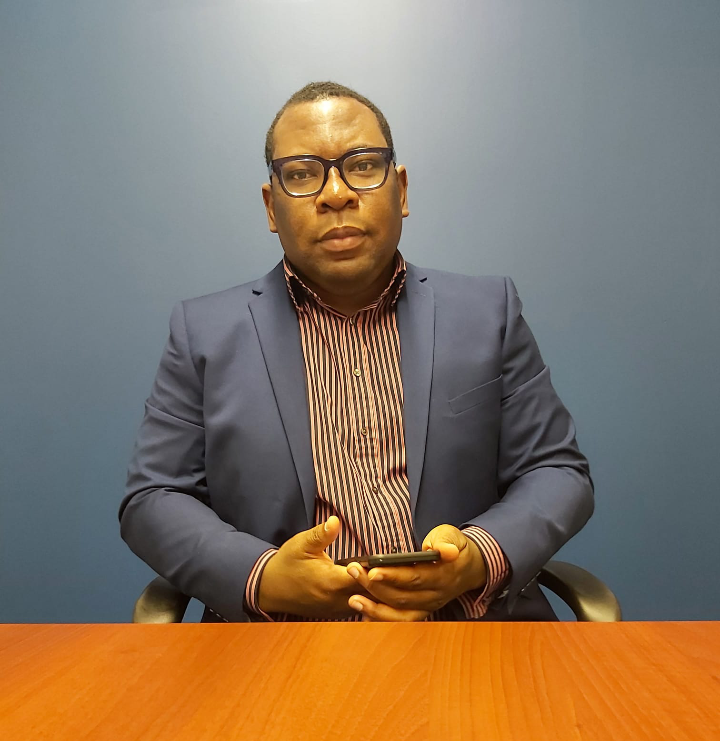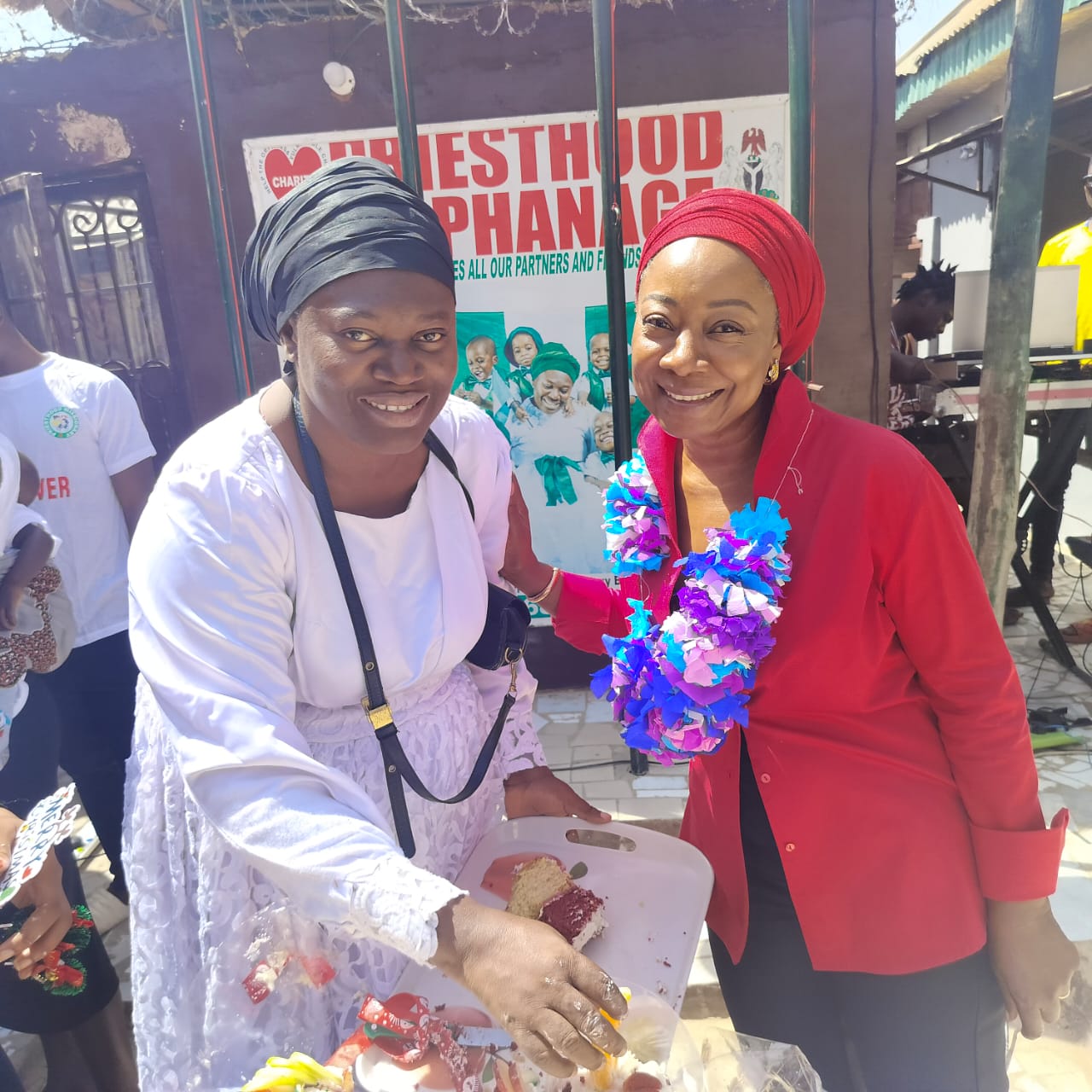News
Modernizing Nigerian Elections: Expert Insights on AI and Cybersecurity

In recent years, the United Kingdom’s election process has been hailed for its efficiency and transparency, with results typically declared within 24 hours of the polls end.
This contrasts sharply with the often delayed and contentious election outcomes in Nigeria. To gain insights into how Nigeria can modernize its electoral process.
In this interview, Kayode Sanni-Arewa, spoke with a leading expert, Oladoyin Akinsuli in AI and cybersecurity on how the use of AI in UK’s election and its efficiency in Nigeria’s electoral system, excerpts.
*Kindly introduce yourself*
Answer: My name is Oladoyin Akinsuli, I am a distinguished expert in artificial intelligence and cybersecurity strategy, known for his innovative approaches and significant contributions to the field.

*Thank you for joining us today. Can you start by explaining why the UK’s election process is considered a model of efficiency*
Answer: The UK’s election system is built on meticulous planning, robust logistical frameworks, and advanced technology. Key features include centralized and decentralized counting of votes, a comprehensive digital infrastructure for voter registration and verification, and high levels of transparency with results made publicly available in real-time.
*How can Nigeria improve its voter registration and verification processes using AI*
Answer: In Nigeria, issues like duplicate registrations and ineligible voters often undermine the integrity of the electoral roll. AI can significantly enhance the accuracy and efficiency of these processes. For example, AI-driven facial recognition technology can ensure each voter is registered only once, reducing multiple registrations.
Additionally, Natural Language Processing (NLP) can analyze and verify voter details, ensuring all registrations are legitimate and accurate. Estonia’s AI-enhanced electronic ID system is a great example of how such technologies can reduce fraud.
*What steps can Nigeria take to streamline its voting and counting processes*
Answer: AI can make voting and counting processes faster and more accurate. Machine learning algorithms can automate ballot counting, reducing human error and speeding up the process. Moreover, predictive analytics can forecast voter turnout and identify potential issues before they arise, allowing for proactive management and resource allocation. This ensures smooth operation on election day, similar to the UK’s use of electronic counting machines.
*Cybersecurity is a critical concern for elections. How can AI help protect the integrity of the electoral process in Nigeria*
Answer: Cybersecurity is indeed crucial. AI can play a significant role in detecting and responding to cyber threats in real-time.
AI systems can monitor network traffic for unusual activities and take pre-emptive actions to mitigate threats. Additionally, advanced encryption algorithms can secure sensitive voter data and election results,
making them tamper-proof and preventing data breaches.
*Transparency in results management is essential for maintaining public trust. How can AI and blockchain technology enhance this aspect*
Answer: Transparency is key to maintaining public trust. Integrating blockchain technology with AI can provide a transparent and immutable ledger of votes, ensuring that all results are verifiable and tamper-proof. AI can also automate the collation and reporting of results, providing real-time updates accessible to the public.
This approach ensures transparency and helps build confidence in the electoral process, as seen in Switzerland’s use of blockchain in elections.
*What strategic recommendations do you have for Nigeria to effectively implement AI and cybersecurity solutions in its election process*
Question: To effectively implement these solutions, Nigeria and INEC should consider the following steps:
1. *Invest in Technology Infrastructure:* Build a robust technological infrastructure to support AI and cybersecurity initiatives. This includes upgrading existing systems and investing in new technologies.
2. *Training and Capacity Building:* Invest in continuous education and training programs for INEC staff to manage and operate new technologies effectively.
3. *Collaborate with Tech Experts:* Partner with technology companies and cybersecurity experts to develop and implement advanced solutions.
4. *Public Awareness Campaigns:* Educate the public on the benefits of new technologies to ensure widespread acceptance and trust.
5. *Pilot Programs:* Implement pilot programs in select regions to test and refine AI and cybersecurity solutions before a nationwide rollout. Pilot programs can provide valuable insights and help identify potential challenges.
*In conclusion, what can Nigeria learn from the UK’s 2024 election process*
Answer: The UK’s 2024 election process demonstrates how AI and cybersecurity can enhance election efficiency, accuracy, and transparency. By adopting these technologies, Nigeria can address many of its electoral challenges, thereby strengthening its democratic processes and public trust. With strategic planning and investment, INEC can transform Nigeria’s electoral landscape, ensuring fair, secure, and efficiently managed elections.
*Thank you for sharing your insights. It’s clear that with the right approach, Nigeria can significantly improve its election process*
Answer: Thank you for having me. It’s been a pleasure discussing these important issues.
News
PHOTO: Courtesy visit to Priesthood Orphanage by Just Friends Club of Nigeria Founder

Dr. (Mrs) Blessing Echenwo, left, founder of Priesthood Orphanage, Karamajiji, Abuja and Mrs. Maria Cardillo, a member of Just Friends Club of Nigeria, during the visit of the club to the orphanage in Abuja…recently
News
Just in: NYSC Releases Batch ‘C’ Corps Members Call Up Letters

The National Youth Service Corps has announced the release of the 2024 Batch ‘C’ Stream I call-up letters for prospective corps members.
The corps made the announcement in a series of post on its official X (former Twitter) handle on Monday.
It said orientation camp for the stream is expected to start on November 27, 2024 and closes on December 17, 2024.
According to the post, “some prospective corp members posted to Lagos will have orientation in Ogun and Osun.
“While some of those posted to Zamfara will have in Kebbi and Sokoto etc”
The corps, however, advised prospective corps members to print and sign an addendum, which will be submitted during registration at the orientation camp.
Tips to guide Deployed Prospective Corps Members
Do not travel to the Orientation Camps at night. Break your journey when necessary.
Report on your scheduled reporting date.
Apply for spelling error and name rearrangement on your dashboard.
After documentation in the Camp, you cannot change your Date of Birth, Date of Graduation, Course of Study and Passport Photograph.
Do not report to the Camp if there is any discrepancies in your course of study or with the Date of Graduation on your Statement of Result and your Call-up Letter. Contact your Institution to sort it out.
ATTENTION TO ALL 2024 BATCH ”C” STREAM I MARRIED FEMALE PROSPECTIVE CORPS MEMBERS
All married female Prospective Corps members (PCMs) who are deployed to States where their husbands are not domiciled should report to the nearest NYSC Orientation Camp for their State of Deployment to be changed.
They are to report during the period of Registration at the Orientation Camps with the copies of their marital and other relevant documents as evidence. Once the change is made it will reflect on theirM dashboard for reprinting.
News
Oba of Benin to withdraw suit as Okpebholo restores rights

The Oba of Benin, Oba Ewuare II, and the Benin Traditional Council may withdraw the suits they filed against the state government as Governor Monday Okpebholo, on Sunday, restored the full statutory rights of the Oba and reversed the policies of the previous administration that impacted the Benin Traditional Council.
A statement on Sunday by Okepebholo’s Chief Press Secretary, Fred Itua, said the governor abolished the new traditional councils in Edo South created by the immediate-past governor, Godwin Obaseki.
Okpebholo also backed the Federal Government’s recognition of the Oba’s palace as the custodian of repatriated Benin artefacts looted during the 1897 British colonial expedition.
Providing an insight into the governor’s gesture, the state Attorney General and Commissioner for Justice, Dr Samson Osagie, said it signaled the resolution of the crisis between the Oba of Benin and the Edo State government leading to lawsuits duringt the Obaseki’s administration.
Osagies said, “The cases in court are cases which the Oba of Benin himself and the Benin Traditional Council instituted against the state government, and they are all civil matters. And you know that in civil suit or in any suit, parties are encouraged to settle amicably.
“So, if the parties are already settling and one side is already meeting the condition of settlement, the next step you are going to hear is that the party who went to court, which is the Oba of Benin, and the Benin Traditional Council, will instruct their counsel to withdraw the cases from court and that will be the end of the matter.
“The two parties are now settling for harmony and peace to reign, so the government is doing its own side of it.
“This statement is a prelude to discontinuing all legal proceedings with respect to the twin issues of the concession of the Oba Akenzua Cultural Centre by government to the Benin Traditional Council for 30 years and the creation of additional councils.”
The statement by Okepebholo’s Chief Press Secretary outlined the administration’s commitment to restoring the dignity and authority of the Benin monarch.
“This administration also hereby abolishes the new traditional councils in Edo South, created by the last administration,” the statement noted.
Additionally, Governor Okpebhol revoked the decision of the Obaseki’s administration to convert the Oba Akenzua II Cultural Centre into a motor park.
The government announced plans to restore the cultural centre to its original purpose.
“This administration is restoring the Oba Akenzua Centre to a suitable condition for its original purpose,” the statement added.
The governor also reinstated the financial entitlements of the Benin Traditional Council, ordering that the status quo before the creation of the abolished councils be maintained.
According to the statement, Okpebholo affirmed support for the Federal Government’s official gazette, which recognizes the Oba of Benin as the rightful owner and custodian of the repatriated Benin artefacts.
He also distanced his administration from the Museum of West Africa Art, instead backing the Benin Royal Museum project to house the artefacts.
“The Federal Government has also issued a gazette for the recognition of ownership and custody of the repatriated Benin artefacts to the Oba of Benin, Oba Ewuare II,” the statement explained. “Governor Okpebholo respects the rights and privileges of the traditional ruler of Benin kingdom… and pledges the support of his administration to ensure the monarch plays his role as the custodian of the rich cultural heritage of the Benin people.”
Okpebholo reiterated his administration’s respect for traditional institutions and vowed to avoid interference in the internal affairs of the Benin Traditional Council. “The Oba of Benin, as the father of all Benin people, is the sole custodian of the customs and traditions of the Benin people, and my administration respects customs and traditions in the land,” he stated, emphasising the government’s efforts to uphold the cultural and historical integrity of the Benin Kingdom.
-

 News22 hours ago
News22 hours agoJust in: Dangote Refinery reduces price of petrol to N970 per litre
-

 News24 hours ago
News24 hours agoInsecurity! Bandits k!ll 7 farmers, burn 50 bags of maize in Niger state
-

 News18 hours ago
News18 hours agoObasanjo narrates how he escaped becoming drug addict
-

 News22 hours ago
News22 hours agoJoint Security Patrol Team wastes Kidnapper in gun duel along Enugu/Ukwu Road
-

 News8 hours ago
News8 hours agoAbia bans unauthorised free medical outreaches
-

 News9 hours ago
News9 hours agoMany Pastors Are Not Enjoying Their Marriages Due To Wives’ Behaviours – Bamiloye
-

 Metro20 hours ago
Metro20 hours agoBREAKING: UK Court Fines Popular Journalist David Hundeyin £95000 for Libel
-

 News18 hours ago
News18 hours agoWe saved $20bn after Petrol Subsidy Removal and FX Rate Reforms, Says Finance Minister








